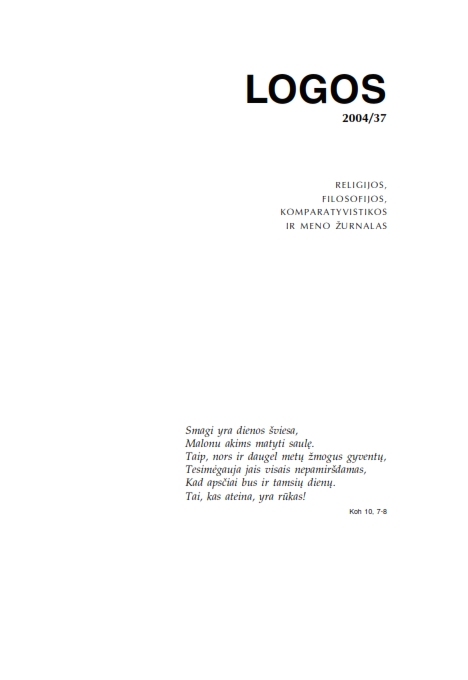Kultūros esmės ir raidos samprata Vydūno filosofijoje
Concepts of the Essence and the Development of Culture in Vydûnas’ Philosophy
Author(s): Vaclovas BagdonavičiusSubject(s): Social Philosophy, Contemporary Philosophy, Culture and social structure , Sociology of Culture
Published by: Visuomeninė organizacija »LOGOS«
Keywords: Culture; absolute; religion; creativity; the world; evolution; man; spirit; nature;
Summary/Abstract: The Lithuanian thinker Vydûnas (1868-1953) based his theory of culture, the most original part of his philosophy, on the fundamental ontological concept of spiritual absolute which is both immanent and transcendent in relation to the world. He borrowed this concept from Hindu Vedanta. According to Vydûnas, culture is the expression of the immanent part of the absolute in which man acts. The essence of man is spiritual, but as a part of nature man belongs to the world. Culture springs from the contact between the spiritual essence of man and the world. The human spirit realises itself in such forms of Man’s activity as science, art and morality. The development of culture means the humanisation of the world. At the same time culture bears and expresses the marks of the personal and national spirit. Thus, the development of culture is both a form of humanisation of the world and the expansion of the spiritual realm of freedom. Religion, as a form of contact of the human spirit with the absolute, does not belong to the world of phenomena and therefore it does not belong to culture. Religion is the very beginning and the ultimate end of culture; for all phenomenal reality tends to the absolute by way of spiritual evolution.
Journal: LOGOS - A Journal of Religion, Philosophy, Comparative Cultural Studies and Art
- Issue Year: 2004
- Issue No: 37
- Page Range: 13-21
- Page Count: 9
- Language: Lithuanian

